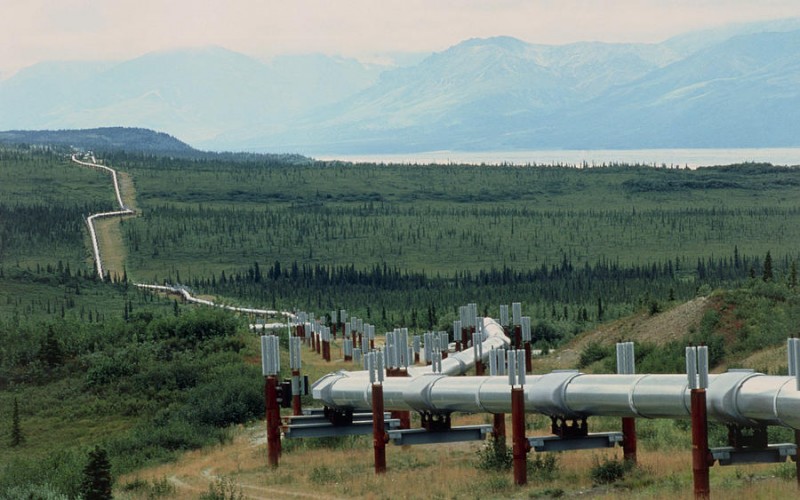East Africa’s LAPSSET project remains at the volatile nexus of political and commercial dynamics with its short to medium term success increasingly unlikely.

East Africa’s aspirations for economic integration were intended to be catalysed through Kenya’s flagship LAPSSET project; however, it continues to face serious obstacles. The ‘mega-project’ is designed to serve as a regional transport corridor – improving trade between Uganda, Kenya, Ethiopia and South Sudan (excluding Tanzania) – complemented by a pipeline network which would improve its feasibility.
With no pipeline, plans to produce from East Africa’s recent oil discoveries are facing serious setbacks – an issue compounded by oil prices which recently dipped to almost $36 per barrel – and are expected to face further problems in 2016.
Pipeline politics
In August 2015, the presidents of Uganda and Kenya agreed to a 1,380 km pipeline route: Hoima-Lokichar-Lamu. However, doubt was quickly cast on this encouraging development as the Ugandan and Tanzanian governments agreed to study an alternative pipeline route to the Tanzanian port of Tanga.
The alternative Uganda to Tanzania pipeline is looking increasingly likely, notably because it is a more economical option while oil prices remain volatile. Adding to regional uncertainty, International Oil Companies (IOCs) operating in the region, namely Total S.A. and Tullow Oil plc, are divided on which route to take.
Tullow is desperate for the pipeline to extend from its oil fields in Lake Albert, Uganda to its Kenyan fields in Turkana County – reducing the burden of having to export limited oil reserves in Kenya (600,000 recoverable barrels), without securing the benefits of boosted commercial viability coming from Uganda’s substantially larger reserves (6.5 billion barrels of crude reserves).
Total, who do not have blocks in Kenya, are adamant that a pipeline extending though Tanzania is a better option. Total do not want to expose their operations to significant security risks in Kenya posed by al-Shabaab. Moreover, Total fears tensions between ethnic groups and refugee flows in Turkana county and possible election violence in 2017 and 2022, having already suffered major security issues in other locations.
A final decision on a pipeline route, whether through Kenya or Tanzania, is essentially, a political one. Kenya, a natural competitor with Tanzania, excluded it from the LAPSSET project in order that it might retain its regional leadership, as its position as regional leader is threatened by Tanzania.
Comparatively, Tanzania, has by far less corruption, less security risks, and encouraging political prospects – confirmed by recent peaceful elections. In turn, it is becoming increasingly favoured by investors, evidenced by it securing the largest proportion of regional FDI. By contrast, Kenya continues to struggle with mounting security problems, high-level corruption scandals and political uncertainty.
Further complicating matters, Ethiopia decided against pipeline integration with LAPSSET and now plan to build their own Addis-Djibouti pipeline, leaving Kenya with the burden of financing a commercially unattractive pipeline from Turkana to Lamu, if Uganda favours one through Tanzania.
Election implications, Uganda and Kenya
These issues will continue to frustrate progress in the oil industry and could lead to increased political tensions which will prove problematic with Ugandan elections in February and the build up to Kenyan elections in 2017. Both countries had expected oil to flow by 2017. For President Uhuru Kenyatta this would serve to improve his electoral prospects. However, Tullow doesn’t expect to make a final investment decision until 2017 and oil is not expected to flow until 2020 or 2022. In turn, local expectations regarding oil have been dashed, as many workers have been laid off in both Kenya and Uganda due to low oil prices and strategic uncertainty.
Incumbent leaders who have failed to deliver on oil related promises thus far will face pressure from opposition candidates looking to draw on the grievances of those negatively affected by the industry or the dampened hopes of those on a national level who expected economic transformation. In both instances the risk of isolated unrest and violence is an increasing likelihood which could impact IOCs.
Pressure on IOCs
Elections in Uganda are already characterized by high-level political divisions, and will be seen by locals as an opportunity to ensure oil revenues will benefit them. By example, Bunyoro Kingdom officials – located near the oil fields are demanding pre-production royalties of 1% obtained by the Ugandan government from ‘signature bonuses’ and capital gains tax. Similar opportunities will likely be sought in Kenya.
If incumbent political leaders in Uganda or Kenya do not manage to secure support from communities affected by the oil industry in the run up to or following the elections, then political and security risks will increase. Said communities will increasingly grow impatient and resort to violence or increase political pressures on governments posing longer-term problems for oil companies’ operations.
sourche: http://globalriskinsights.com/2016/01/east-africas-pipeline-politics-in-2016/

Δεν υπάρχουν σχόλια:
Δημοσίευση σχολίου